This IIM Calcutta alumnus is ‘bee’ing the change for a sustainable future, has impacted over 10,000 people in bee conservation
In this week’s #SustainabilityAgenda series, we have Devendra Jani, who is creating awareness about bee conservation and sustainability. More than 10,000 people have been impacted through his Bee – The Lead initiative.
Devendra Jani, a Pune-based IT professional and an alumnus of IIM Calcutta, got an opportunity to work with Global Shapers Community in 2015, a network of young people driving dialogue, action, and change. The global organisation works on local levels and local projects.
Being inclined towards growing plants and maintaining a small garden, one of the major issues that concerned Devendra as a child was the excessive use of pesticides and poisonous chemicals in farming. So, many years later, he tried growing plants at his home and was getting a sufficient supply of chilly, moong dal, ginger, spinach, tulsi, and mint, but not tomatoes.
“While experimenting with this self-sustenance, I realised the tomato plants were suffering from a flower-dropping syndrome, where the flower was not converting into a fruit. A quick online search made me realise that Bumble Bees are the best pollinators for tomato plants, and they were not flying high to the fifth floor of my apartment,” Devendra Jani tells SocialStory, saying that was his introduction to bees.
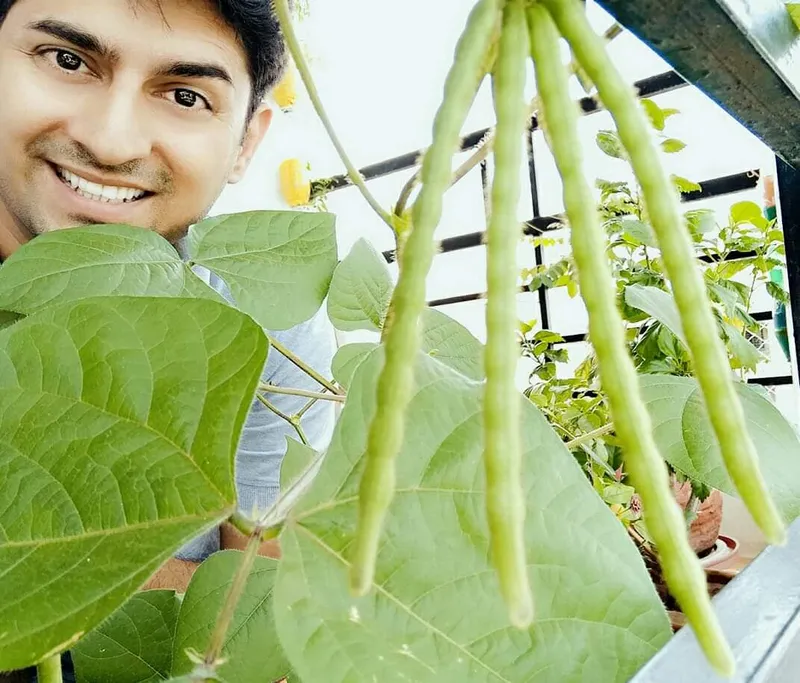
Devendra with his homegrown beans
He then visited the Central Bee Research Institute in Pune, where he learned some amazing facts and secrets about bees.
“Like everyone, I was also afraid of bees. But the training changed my point of view towards bees. They are much more to us than sting and honey,” he says.
With that understanding, ‘Bee-The Lead’, a bee conservation initiative to transform human behaviour towards bees, was born in 2015. Through this initiative, Devendra not only creates awareness about bees among farmers, children, and other sections but also shows how people could learn leadership lessons from honeybees.
Bee – The Lead’s projects revolve around the LAW - Land (Bee Centric Farming), Air (Tree Friend, Plant a Bag and Bee Friendly parks), Water (River Clean-ups). Devendra says, so far more than 10,000 people have been impacted through the initiative.
As of now, Devendra is looking to get more like-minded people onboard. He is being supported by various other NGOs to execute projects revolving around LAW.
Bee-centric farming
A lot of farmers don’t realise they are trapped in a vicious cycle of buying seeds, fertilisers, and pesticides, which according to them are necessary for farming. The following year, the soil quality depletes severely, forcing them to use more poisonous chemicals. In the long run, they fall into major debts due to which they eventually commit suicide.
Bees are farmers’ best friends. They help in the pollination of crops and increase farm production. However, the unrestricted use of pesticides and fertilisers are impacting the Bee population as well.
“It’s an uphill task to convince farmers to practice natural farming due to the myths associated with the quantity of produce. I have been training farmers to help them realise the importance of bees in farms,” says Devendra.
He adds that beekeeping is a farm supplementary activity and it does not have high maintenance overhead like cattle raising.
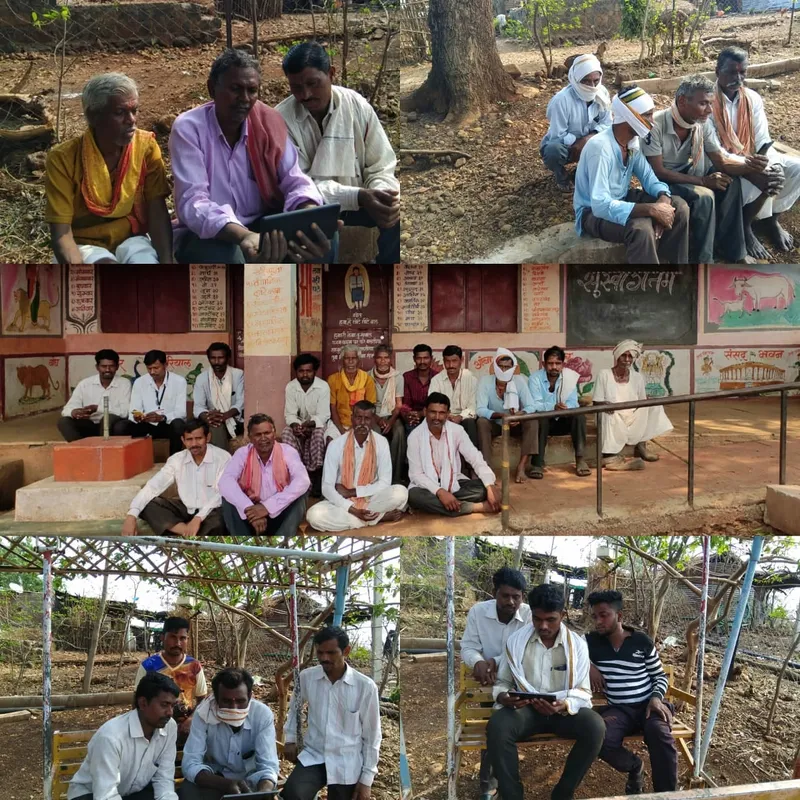
Training in the Yavatmal district of Maharashtra with the help of tabs
“We know that native crop seeds are the best option for climate-resilient farming. It is observed that pollination done by bees helps increase the farm yield by 80 percent. In fact, local bees prefer native crops over genetically modified plants,” he shares.
Devendra is also training farmers on beekeeping to promote natural farming practices. Pune-based NGO Shivprabha Charitable Trust is helping Devendra reach farmers’ communities in the tribal area of the Yavatmal district of Maharashtra.
“The more farmers learn about the importance of bees, the better it is for chemical-free farm produce. Having bee boxes on farms will ensure the use of poisonous chemicals is restricted and increase the yield,” he says.
Making a tree-friend
A nature lover, Devendra believes it is high time we make friends with other elements of nature. He runs a project called ‘Tree Friend’ in some schools in Pune, where students are given bee-friendly plants to nurture for a year. The kids have to care for the plant and flaunt it as a friend to other students.
“I find kids are more empathetic towards bees than adults who already have their conceptions. It is difficult to change human behaviour after it is solidified,” he says.
“When these kids grow up, they will have empathy for these tiny insects. It is fulfilling to inspire the next generation of eco citizens with guides, lessons, and activities to get them buzzed-about bees,” he adds.
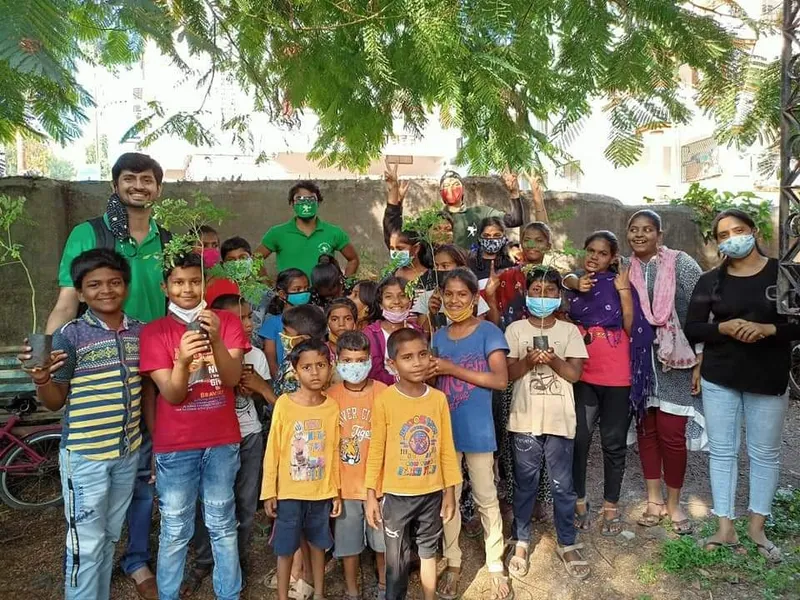
Devendra and the students for the 'Tree Friend' initiative
Devendra also runs a similar project for the underserved students called ‘Plant a Bag’. He provides them with bee-friendly trees to be taken care of for a period of six months. If the sapling survives, then the student will get a school bag as a gift.
“This will motivate the school children to continue schooling, take care of trees, and connect with the ecosystem. A successful pilot was done in my village in Dodua, Rajasthan,” he shares.
Starving bees would need a source of bee flora to survive the migration to cities. In fact, high levels of pollution and the burning of wastes can prevent bees from coming. So, Devendra is currently discussing with the Garden Department of the Pune Municipal Corporation to make the city’s parks bee-friendly.
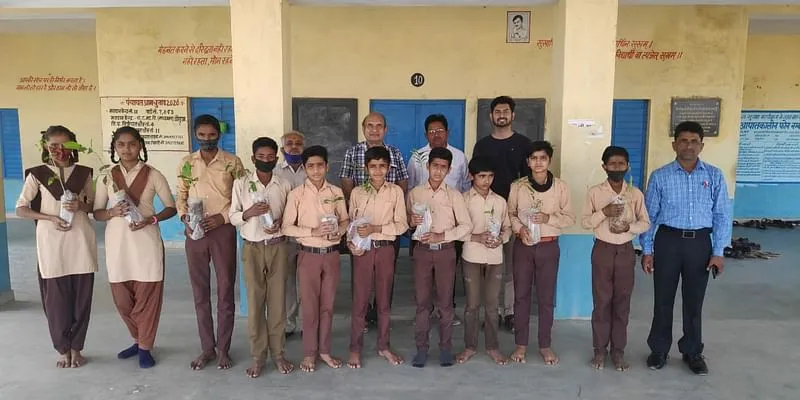
Devendra Jani with the children for the 'Plant a bag' initiative
“The parks can be termed as bee-friendly where there is bee flora, water, and nesting opportunities. Some pointers to be followed by the garden department include no burning of dry leaves, no use of pesticides, no smoking zone – along with nesting provided for native bees, more native bee-friendly flowers and plants, a small water station and converting lawns into native grass patch for bees,” he says.
River clean-ups
Bees also struggle to find a clean source of water. Post-monsoon, we are exposed to the horror of the river edge flooded with plastic waste.
To address the issue, Devendra conducts river clean-up drives along with other organisations in Pune, where they collect plastic waste from the river basin and sensitize citizens about the impact of polluted water on humans and bees.
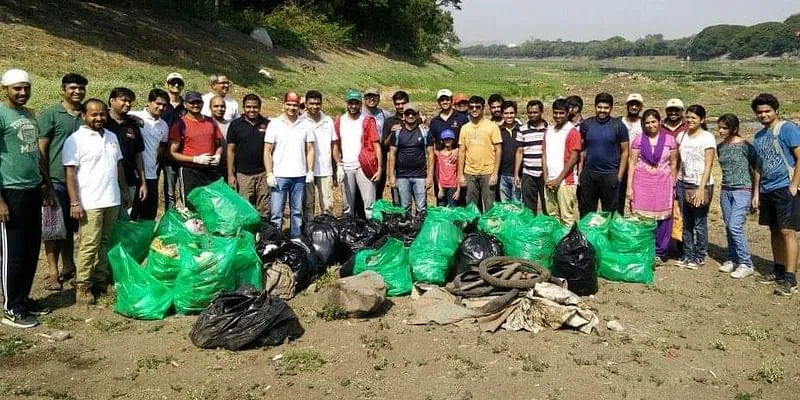
Cleanup of the Mutha River near Pune
All these projects by Devendra are done pro-bono and are mostly self-funded. During the pandemic, he has been conducting farmer training sessions and awareness programmes through online channels.
In fact, it has been easier for him to conduct these sessions online than travel back and forth to different places. About 16 farmers from the Yavatmal District have been connected through tabs donated by the NGOs. The only challenge is doing the hands-on training and teaching them how to handle bees on their farms.
The road ahead
Devendra wants to create awareness about native plants and social forestry, and help farmers grow those specimen on their land. He also wants to ensure that at least one plot of land can be converted to bee-friendly land, and wants to move the government departments for the same.
“I also want to make these projects multi-fold – every child should have a tree-friend and every farmer should have a bee box,” Devendra shares.
“If the farmers use bee-boxes, I think the food quality can improve across the country, and farmers can truly produce ‘real food’, steering away from anything modified,” he says.
Edited by Megha Reddy


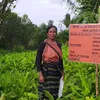




![[App Fridays] TikTok lovers, are you ready for Firework, the new short video platform in town?](https://images.yourstory.com/cs/2/a182c7e0140711e987e2f7248b252f46/Firework1571401406063png?mode=crop&crop=faces&ar=1%3A1&format=auto&w=1920&q=75)

